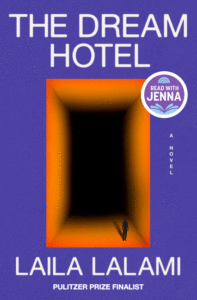“Laila Lalami’s disturbing new novel, The Dream Hotel, raises an existential question: How to read dystopian fiction when what has been imagined is now a familiar, quotidian reality?
…
“By the time Lalami returned to The Dream Hotel after putting it aside for several years, sleep trackers, license plate readers, doorbell cameras, geofencing, GPS, Bluetooth beacons, and facial recognition had become commonplace. Her protagonist, like most of us, has so thoroughly surrendered her privacy that its absence hardly registers.
…
“Lalami is a canny, powerful, humane writer. She has created a fictional world that we now understand implicitly and a protagonist who could be any one of us. Sara Hussein assumes she will gain her freedom by following the rules. But her sentence keeps spooling outward; following the rules has not brought her any closer to being released.
…
“On first reading, this seems too easy—in real life, troublemakers are rarely rewarded, and successful resistance takes a sustained, persistent effort. Lalami clearly needed a way to get Sara home to end the book, and springing her in this way is consistent with the arbitrary nature of her incarceration and the mercurial behavior of her keepers. Upon reflection, though, it is more than this. Dystopian novels are not merely the expression of vivid imaginations, they are often warnings about what’s to come. So far no one is mining our dreams, though who is to say that won’t happen in the future—and for many of us, Trump and his attendants have already infected our sleep. The lesson of The Dream Hotel is not that it—which is to say surveillance and the demolition of civil liberties—can happen here or even that it is happening here. It is that dissent is still an option, if only, like Sara Hussein, we choose to take it.”
–Sue Halpern on Laila Lalami’s The Dream Hotel (The New York Review of Books)












